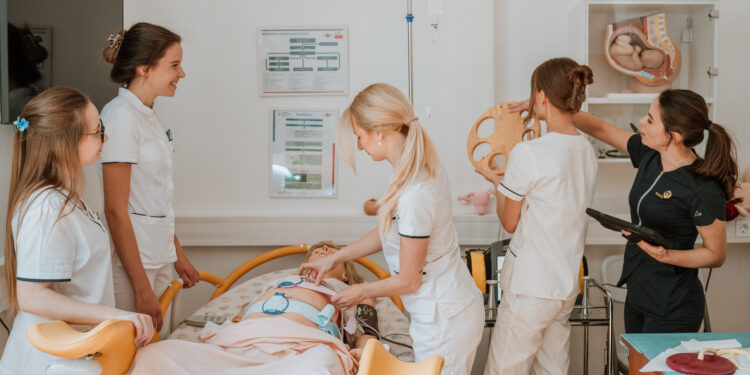Care of Migrant and Refugee Women and their Families

Background
There are currently over 1 billion migrants globally (1). This includes 110 million people who have been forcibly displaced. Refugees and migrants often face xenophobia, discrimination, poor living, housing, and working conditions and inadequate access to health services, while also frequently dealing with physical and mental health problems (1)(2).
Quality sexual, reproductive, maternal, newborn, and adolescent health (SRMNAH) services are essential for the well-being of migrant and refugee women and gender diverse people. They cover a wide range of care including maternal and newborn care, access to contraception, and the prevention and treatment of HIV or other sexually transmitted infections (2). These services all promote individual rights and afford displaced people the freedom to make decisions about their sexual and reproductive health, but also ensures that women have access to quality antenatal, birth, and postnatal care (2).
Despite this, quality sexual and reproductive health services are often not available for migrant and refugee women and their families, which exposes them to reproductive health risks including unwanted pregnancies and exposure to sexually transmitted infections. Additional risks include malnutrition, poor sanitation, and lack of maternity care, including psychological care in pregnancy, birth and postpartum. HIV screening is often delayed or unavailable and support for infant care and breastfeeding may be lacking or suboptimal.
Position
ICM believes that the rights of migrant and refugee women and their families should be protected in all circumstances and that countries have an obligation to provide sexual and reproductive health services. ICM advocates for the inclusion of culturally sensitive and respectful maternity care (using interpreters if needed) to all childbearing women and their families irrespective of their status and country of origin.
Recommendations
ICM urges midwives’ associations to:
- Promote the rights of migrant and refugee women and their newborns,
- Ensure equity in access to quality SRMNAH services regardless of a refugee’s status,
- Promote respectful care for migrant and refugee women within midwifery education as well as in service provision,
- Liaise with local governments to ensure access to midwifery services.
Related ICM Documents
References
WHO 2022 Factsheet: Refugee and Migrant health. Available from: https://www.who.int/news-room/fact-sheets/detail/refugee-and-migrant-health
UNHCR 2024. Available from: https://www.unhcr.org/what-we-do/protect-human-rights/public-health/sexual-and-reproductive-health
Adopted at Toronto Council meeting, 2017
Revised and adopted at Virtual Council meeting, 2024
Due for next review 2027


